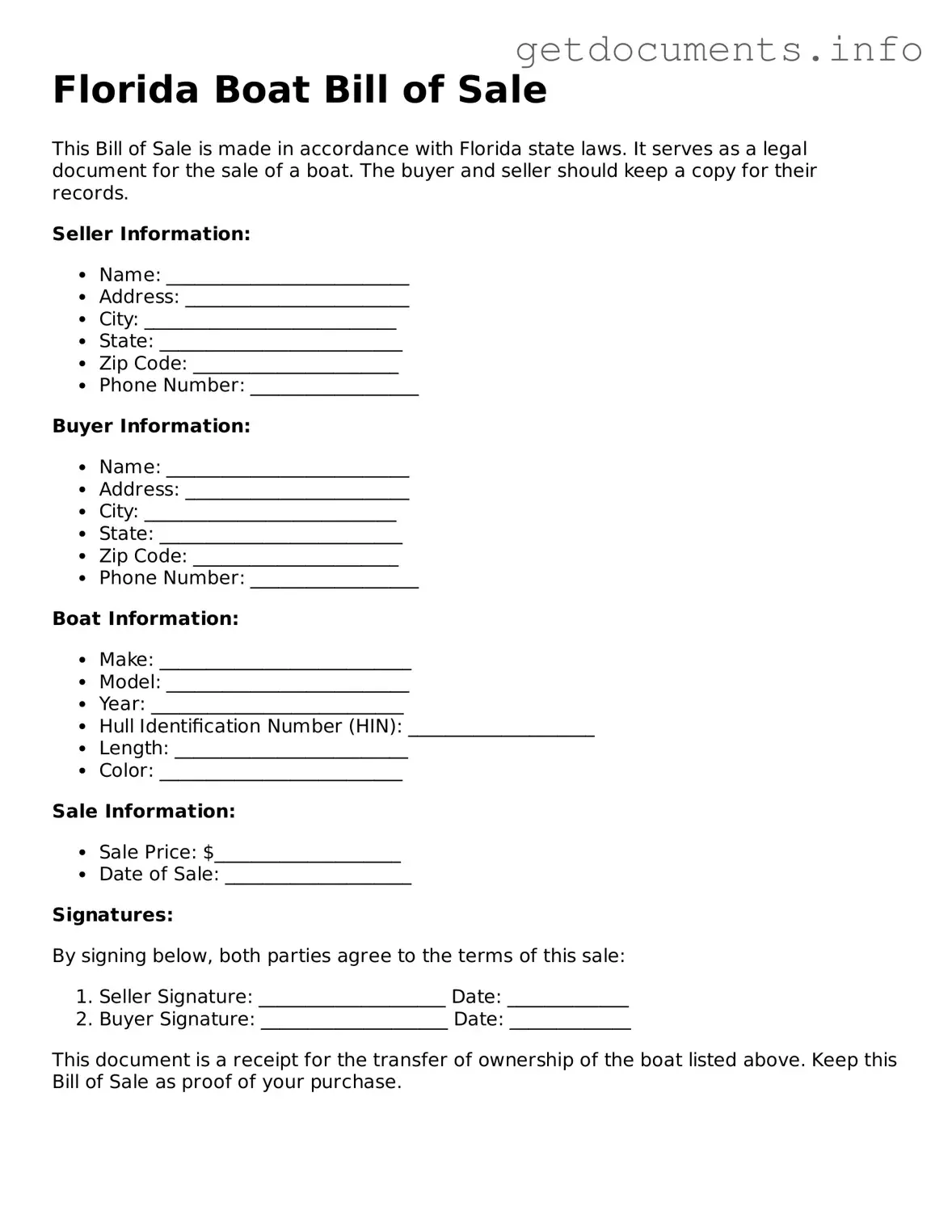Free Boat Bill of Sale Template for Florida
The Florida Boat Bill of Sale is a legal document that records the transfer of ownership for a boat between a seller and a buyer. This form is essential for ensuring that both parties have a clear understanding of the sale and its terms. To get started on your boat ownership journey, fill out the form by clicking the button below.
Access Boat Bill of Sale Editor

Free Boat Bill of Sale Template for Florida
Access Boat Bill of Sale Editor
Got places to be? Complete the form fast
Fill out Boat Bill of Sale online and avoid printing or scanning.
Access Boat Bill of Sale Editor
or
⇩ PDF File
